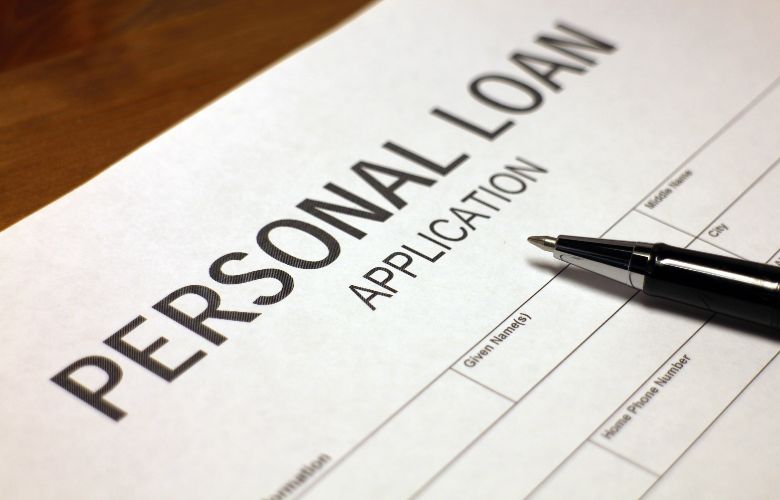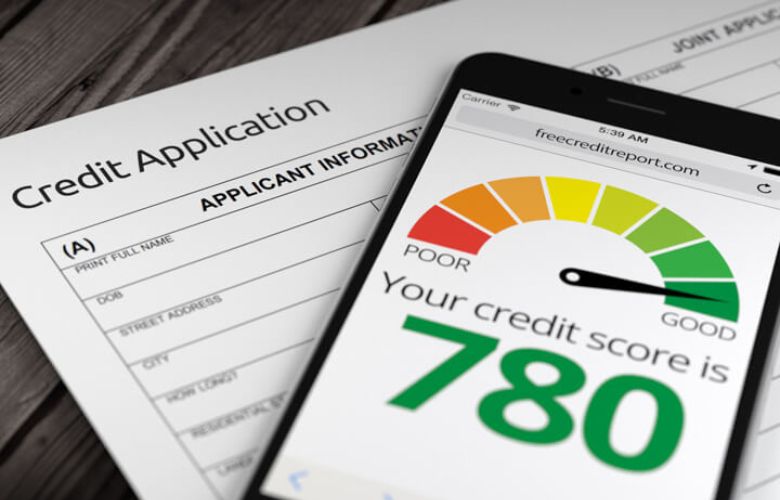Personal loans may be an excellent financial resource for a variety of reasons. It offers quick money to individuals. They might be used to consolidate debt, pay a trip, school or medical bills, or construct a new addition to your house. However, it is not free money, so you have to be careful when deciding to apply and study your possibilities before making a decision. Many consumers make a few blunders when looking for and applying for the finest personal loan. Just like other things, it’s important that you pay attention while requesting a personal loan. It helps to conduct a little study ahead of time for anything impacting your finances.
This article will provide more information about personal loans and their benefits, the common mistakes some people make when applying, and how to avoid them.
What is a Personal Loan?

Personal loans are sums of money borrowed from a bank or financial institution to suit personal needs. Some of the common providers of personal loans are banks, online loan lenders, and credit unions. These loans can be used to fund major life events such as house renovations, automobile repairs, weddings, or vacations. They are often taken out by borrowers who want greater sums of money to be repaid over a longer period of time, typically between two and seven years.
These loans are given based on your lender’s criteria, including your income level, employment history, repayment capacity, and credit score. The majority of lenders will likewise most likely reserve the lowest interest rates for clients with top credit. A good credit score is required to get the loan. A credit score demonstrates a positive financial history in the past and indicates that you are a less risky borrower.
7 Personal Loan Application Mistakes to Avoid
We will discuss the seven most important mistakes to avoid when applying for a personal loan. Gaining knowledge of these traps and knowing how to avoid them will help you improve your chances of getting a personal loan with favourable terms and a more convenient borrowing experience.
Taking Out A Loan With A Longer Loan Term Than Necessary

Applying For Too Much Credit

Failing To Shop Around For The Best Interest Rates

Using A Personal Loan As A Source Of Income

Some people, like freelancers or self-employed folks, might sometimes need more money to make ends meet or manage their businesses. In these situations, they might consider getting a personal loan. This loan can give them a lump sum of cash to use for things like paying bills or investing in their work. But it’s important to be careful and think about how this might affect you in the long run.
When you get a personal loan, you need to think about how you’re going to pay it back. This money is not like a regular salary; it’s more of a one-time help. You’ll need to figure out how you can manage your loan payments along with your regular expenses.
If you have other debts, like credit card balances, you may have to make minimum monthly payments on them. But if you use a personal loan for income and only pay the minimum on your other debts, you might end up paying a lot more in interest over time. That’s because it can take a very long time, often more than 20 years, to pay off what you owe if you just pay the smallest amount.
Not Looking At Your Credit Score Before Applying

Lenders want to know that you can return what you borrow, which is why the majority of them demand that you provide work and income information. However, your creditworthiness is also essential, as this will show lenders your capacity to repay the loan on time.
Applicants with exceptional credit often receive the most competitive loan rates. However, if your credit score is low, you may be charged excessive interest rates and wind up paying hundreds or thousands of dollars in interest. In some cases, your application may be denied by the lender.
Checking your credit is important before applying for a personal loan to avoid any issues. If your credit score is low, it’s worth looking into other ways to receive the money you need. Meanwhile, evaluate your credit rating and file disputes if you find any false or outdated material that may be affecting your credit score.
Keep a close eye on your credit score and take appropriate action if there are any disparities. Paying your bills on time, lowering your credit card balance, and using credit responsibly can all help you raise your score.
Overlooking Penalties And Fees

Borrowing More Than You Need

Many people are tempted to borrow more money than they truly need when taking out a loan, which is a common financial temptation. Even though it could make sense to keep some extra cash on hand for unforeseen costs or as a safety net, doing so can cause issues in the future.
Taking on too much debt can cause several issues. First of all, you can accumulate needless debt that you have to pay back with interest. If you borrow more than you need to, your monthly loan payments will increase, which will put pressure on your finances and make it harder for you to make your payments on time.
This problem has an easy fix: determine your precise borrowing needs and only take out loans for that amount. Refrain from taking out more money than is required to pay for your particular expenses. By doing this, you can minimise the cost of interest payments and keep your debt load under control.
Personal loans: How do they work?
Loans for a house or car are not the same as personal loans. Most of these loans require you to put up an asset as collateral in case you default on the loan. These are called secured loans. If you fail to make your monthly payment, your collateral may be taken. The process might also take longer if you want a secured loan. You must provide particular information, such as the worth of your asset. Most personal lenders would additionally ask that the asset be worth at least as much as the loan amount. Unsecured personal loans are the type of personal loans most people get. However, since unsecured personal loans have no collateral to back them up, lenders may demand high interest rates.
Personal loans are charged interest based on a customer’s credit score and repayment capabilities. The rate can be paid over one to seven years and ranges from 5% to 36%. Additionally, you can decide between a fixed and variable interest rate. A fixed interest rate, which virtually all lenders provide, is a constant rate levied on a loan. It applies for the duration of the loan and remains constant throughout. On the other hand, since they are based on a benchmark interest rate that is subject to frequent changes, variable interest rates are subject to fluctuations.
Benefits Of Applying For A Personal Loan
If you’re wondering what the advantages of getting a personal loan are, the answer is that there are plenty. Some benefits of a personal loan are its flexibility, larger borrowing limit, and predictable repayment schedule.
Lower Interest Rates Than Credit Cards
Compared to credit card interest rates, personal loan interest rates are frequently lower. Personal loan rates start at around 5% for people with good credit. Even people with poor credit may not be charged interest rates in the double digits. When you hold a balance on your credit cards, the interest accumulates.
Collateral Is Not Always Required
Borrowers who get unsecured personal loans do not have to put up collateral to borrow money, unlike with a secured loan, which might have serious implications, like losing your collateral.
Predictable Repayment Schedule
Personal loans are installment loans; therefore, they have set conditions for repayment. This implies you’ll know how long you’ll have to make payments. For fixed-rate personal loans, your interest rate will be constant, and you will know precisely how much you will pay in interest during the term of your loan.
Longer Repayment Terms Compared to Other Loans
Personal loans include repayment terms ranging from a few months to a few years. You may be able to find unsecured personal loans with longer durations, maybe up to seven years. When compared to payday loans, which offer far shorter durations and exponentially higher interest rates, this is a much better deal.
Easy Application
Filling out an application form for a personal loan is rather straightforward when compared to other sorts of loans, such as a mortgage, home equity loan, or home equity line of credit. Furthermore, several online personal loan providers employ an all-online application method.
Build Credit History
When you take out a loan, you are increasing your credit history. Personal loan lenders disclose your payment history to the main credit agencies, which might be Experian, Equifax, TransUnion, or all three. Making frequent, on-time payments helps to create a positive credit history and raises your credit score. Missed payments, on the other hand, will be recorded and may have a negative influence on your credit score.
Easy To Track and Manage
Taking out a single personal loan is easier than combining many credit cards to form a larger loan. Different loans often have different payment due dates, lender regulations, and interest rates. It is significantly more convenient to take out a lump sum and make a single payment to a single lender.
Can Be Used For Different Purposes
Perhaps the main benefit of taking out a personal loan is that you can use it for most purposes. Some common uses include major purchases, home renovations, dream vacations, and debt consolidation.
The Bottom Line
For a variety of financial needs, personal loans can be useful financial instruments that offer a practical solution. While there are some typical errors that borrowers need to be aware of, knowing these traps can help you borrow money more sensibly and intelligently. People can take advantage of personal loans and reduce the risks involved by doing their homework, comparing lenders, and creating a clear repayment schedule. You can accomplish your objectives and keep your finances stable by making wise financial decisions and exercising fiscal restraint.


